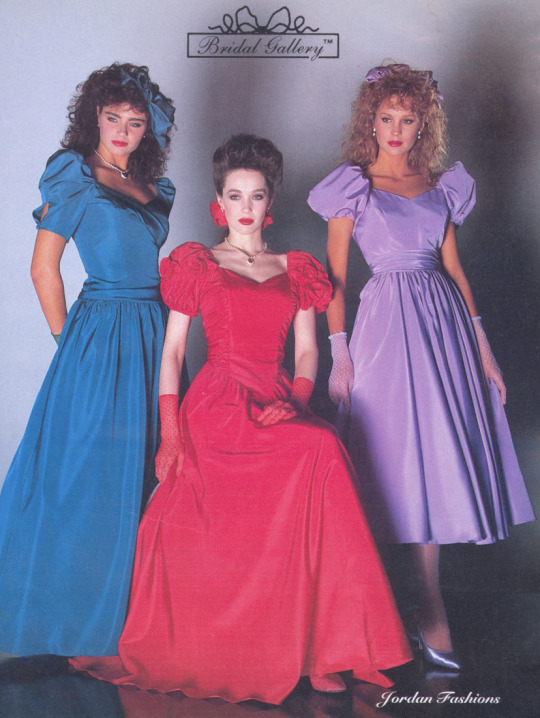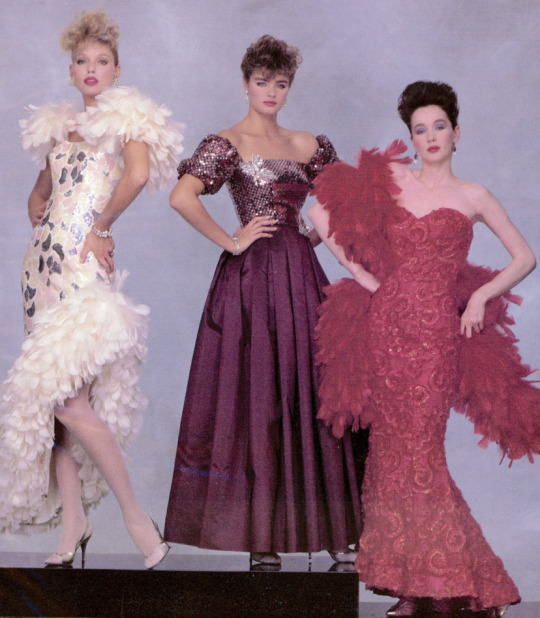#joanne freeman
Video
youtube
You want to come up with your own interpretation of Shakespeare, go with it...I studied a-lot of Shakespeare in college and I was hired as research assistant and was sent to look at different interpretations of Shakespeare plays...”
4 notes
·
View notes
Quote
Of course, logical decisions can be bad decisions, as the men who people these pages discovered.
One can make rational choices for all the wrong reasons, or reason one’s way into the wrong path. Honor bound politicians were not always honorable—and this is precisely the point. Too often, the Founders are praised to the skies as saintly deities of governance or condemned as self-interested elitists who cared for money and power above all else. In reality, they were something of both. They sincerely strove to create a great nation grounded on popular will and the rights of man. They were also obsessively concerned with their interests, careers, reputations, and pocketbooks, practicing down-and-dirty politics in their efforts to get ahead. This is a distinction that makes a difference.
If the founding generation were a band of angels, American politics has been in a state of free-fall ever since; if they were little more than greedy power-mongers, there is little hope that America can rise to much more. However, as real people who struggled with a difficult task, sometimes inspired to high purpose, other times feeding their meanest appetites, they extend to posterity the gift of hope.
If these fallible, flawed people could accomplish great things, perhaps future generations can do so as well. It is the logic that inspired their greatest hopes for the future, the ultimate message they hoped to impart. So, in ways that the founding generation realized all too well, history does matter. As suggested by the passion they devoted to their histories, memoirs, and biographies, the future is shaped by its understanding of the past. Though later generations have long overlooked or misunderstood these heartfelt final addresses to posterity, they were efforts well taken. For regardless of whether we praise or condemn their biased views of the past, they remind us that history—like politics—is subjective, contested, and fueled by personal agendas.
They remind us that history is a story that we tell about ourselves.
Affairs of Honor, by Joanne B Freeman.
... And cut.
4 notes
·
View notes
Text
Put a fork in him.
#heather cox richardson#joanne freeman#historians#attorneys#maga meltdown#love wins#change is coming#state politics#us politics#enough is fucking enough
1 note
·
View note
Text

Modern Bride, 1986.
Models: Sandra Freeman, Joanne Russell, and Rosie Vela.
71 notes
·
View notes
Conversation
Galadriel, to Sauron: There are 1,013,913 words in my native language but I could never string any of them together to explain how much I want to hit you with a chair.
#trop#trop spoilers#the rings of power#the rings of power spoilers#galadriel#incorrect quotes#incorrectringsofpower#source: unknown#source: falsely attributed alexander hamilton quote#seriously if you know the source come forward#it is driving me crazy#source request#person who debunked the information re: hamilton is Joanne Freeman btw
39 notes
·
View notes
Text

French had come a long way from the knockabout days of his New Hampshire youth. He lived most of his life in the corridors of power, an insider’s insider, an intimate of presidents who socialized with congressmen. For a time, he even had a modest national presence in the press. He achieved his greatest glory among the Masons, becoming a national leader of the highest rank. His death made the front page of The New York Times.
Since then, French has been almost totally forgotten, perhaps for good reason. Although he lived his life amid the nation’s ruling elite, he held little power of his own. He was the man behind the scenes par excellence, the one who made things go, the instigator, organizer, and promoter all in one.
Such a man doesn’t often make the history books, as French well knew. It was one of the many reasons he valued his diary. Future generations would see only what appeared in public documents, he worried. Diaries offered a different truth. Filled with the minutiae of life, they captured something of the past’s human reality, the commonplace people and everyday events that form the backbone of a time. As a newspaper clipping pasted in his diary put it: a diary “is the soul of days long ago.”
And what of Congress? What of its real history would survive? French had his doubts. A few months before he died, he addressed this theme in a speech before the Association of Oldest Inhabitants of the District, an organization that had welcomed him into its ranks several years past. Speaking of the “Old Capitol Prison,” he feared that the truth would be forgotten. Future “romancers” would tell tall tales about the prison’s horrors at the expense of its reality and truth. “I now predict, that the time will come when some fruitful but distempered imagination ... will produce a ‘Myth of the Old Capitol’ that will blanch the ruddiest cheek, and make the darkness of midnight awful.” He knew whereof he spoke, he insisted. In some distant future, someone would read his speech and declare him a prophet.
French was talking about the construction of history, and he was indeed prophetic; he knew that past events are stripped of subtleties at the expense of truths in the progress of time. In the case of Congress, later generations overlooked its ugly undertow, envisioning its history as a succession of great issues discussed by great men speaking great words, with nary a trace of the tobacco-stained rugs.
French preferred a history of light and shadows: the majestic vista of a candlelit night session peopled by bleary-eyed, cranky, unshaven congressmen. His attempt at a memoir in 1856 put his ideas into practice. Characteristically, it opens with a few lines of verse, though not his own.
Quoting Robert Burns, French wrote:
But how the subject-theme may gang,
Let time and chance determine;
Perhaps it may turn out a song,
Perhaps turn out a sermon.
The end result was part song, part sermon. French lauded great men of the past while detailing the House’s howling fury, including some of its fights and its one death by duel. As he himself put it, “I witnessed it all.”
— The Field of Blood, by Joanne B Freeman.
1 note
·
View note
Text
youtube
Joan Ryan (the original Judy Denmark) uploaded a video of the entire original Los Angeles production of Ruthless! the musical- she labels it as "original cast" but that's pretty clearly Kathryn Zaremba, who was a replacement (and kills it).
It's incredible to see how tight the staging of the show is, there's never more than a few seconds without a joke and they don't drop a beat. It's so funny even all these years later now that the references aren't as fresh.
#Ruthless!#Joan Ryan#Kathryn Zaremba#Rita Mckenzie#Nancy Linari#Loren Freeman#Joanne Baum#Marvin Laird#Joel Paley
1 note
·
View note
Text
Loser submissive omega take: Washington was a unifying, noble, non-partisan leader to his very last breath.
Chad sigma male take: Like most people, Washington did not live up to his ideals and by the end of his life was a disgruntled, visibly Federalist peepaw shaking his cane in the air because he didn't like the state of the country or the Democratic Republicans people running it. Joanne Freeman did this great impression of late-life Washington clenching his fist going "We gotta get Federalists into the Virginian legislature" and it's canon in my book. The man learned that James Madison was backing James Monroe for Governor of Virginia a literal day before his death and got so pissed that his secretary Tobias Lear went "pls chill".
He requested me to read to him the debates of the Virginia Assembly on the election of a Senator and a Governor; and on hearing Mr Madison’s observations respecting Mr Monroe, he appeared much affected and spoke with some degree of asperity on the subject; which I endeavoured to moderate, as I always did on such occasions.
the "as I always did on such occasions" makes me think that this wasn't a one-time thing and washington frequently went on rants about monroe and the jeffersonians.
#i am convinced that washington being attacked by democratic-republicans did a lot for his relationship with hamilton#they were like “twinnn where have you beennn”#father son bonding activity: hate on jeffersonian newspapers#george washington#amrev fandom#amrev#historical hamilton#tobias lear#james monroe
38 notes
·
View notes
Note
Who would you say are some exceptional female historians who've written about the US presidency?
There are scores of great female Presidential historians, so any quick list that I make will invariably leave deserving historians out and I apologize ahead of time. Before I begin the list, I want to give special recognition to one of the very best:
Doris Kearns Goodwin's bibliography measures up against the books of any and all Presidential historians. Her first book, Lyndon Johnson and the American Dream: The Most Revealing Portrait of a President and Presidential Power Ever Written (BOOK | KINDLE | AUDIO) was originally published in 1976 but, in my opinion, remains one of the greatest Presidential biographies EVER written.
Others, in no particular order:
•Margaret Leech
•Amy S. Greenberg
•Elizabeth Drew
•Brenda Wineapple
•Candice Millard
•Amity Shlaes
•Jan Jarboe Russell
•Annette Gordon-Reed
•Alexis Coe
•Lady Bird Johnson (her diaries are priceless first-person accounts of her husband's Presidency and life in the White House)
•Joanne B. Freeman
•Lynne Cheney (surprisingly to most people, the wife of former Vice President Dick Cheney is a respected historian who has written excellent books on James Madison and the early Presidents from Virginia)
•Fawn Brodie
•Aida D. Donald
•Kate Andersen Brower
•Elizabeth Brown Pryor
•Peggy Noonan
•Nancy Gibbs
•Nancy Isenberg
•Susan Swain
•Margaret Truman
•Edna Greene Medford
#History#Presidents#Presidency#Presidential History#Presidential Historians#Writers#Women in History#Female Presidential Historians#Doris Kearns Goodwin
21 notes
·
View notes
Text
youtube
'A strike at the heart of democracy': Why billionaires are flocking back to Trump
Donald Trump’s campaign is claiming they raised over $50 million at a Saturday night fundraiser in Palm Beach, Florida, nearly double the historic amount raised by President Joe Biden during his Radio City Music Hall event last month, alongside former presidents Obama and Clinton, which brought in over $26 million. Vanity Fair Special correspondent Molly Jong-Fast and Yale University history professor Joanne Freeman join Ali Velshi to discuss whether these numbers are trustworthy, and the alarming trend of billionaires and wealthy donors returning to Trump’s fold after previously disavowing him in 2020.
10 notes
·
View notes
Quote
As Adams showed time and again, such gags could be resisted. But it took a certain kind of man with a certain kind of nerve to stand down angry men bellowing calls to order. Called to order for irrelevance in 1840, Wise declared himself one of these men: “Let me tell gentlemen, that if they ever attempt to apply the screws to me for this irrelevancy in debate, I will throw them into a scene of disorder which it will not be so easy to get out of. This would be easy for a man of nerve to do when he was determined to maintain his rights.” On June 14, 1841, he asserted that nerve during a six-hour diatribe defending a gag rule, probably leading many to want him gagged.
The Field of Blood: Violence in Congress and the Road to Civil War by Joanne B Freeman
2 notes
·
View notes
Text
13 notes
·
View notes
Text

Modern Bride, 1985.
Models: Kim Charlton, Sandra Freeman, and Joanne Russell.
32 notes
·
View notes
Text
Watching Joanne Freeman lectures like they're high art on discord right now
24 notes
·
View notes
Note
What would you say are some of your favorite books? Can be recently read or some from when you were younger
I have not had time for pleasure reading in a WHILE unfortunately. All the books I read these days are for school. (If you want some recommendations on books for counter terrorism studies and strategic foreign policy, I'd be happy to share, haha)
I'd have to look back at my library, but going off the top of my head I have a few:
A Tree Grows in Brooklyn by Betty Smith
A Song for Summer by Eva Ibbotson (Who was a major influence on my writing style)
The Haunting of Hill House by Shirley Jackson
The Call of the Wild by Jack London (Which sparked my lifelong obsession with the Yukon wilderness aesthetic)
To Kill a Mockingbird by Harper Lee (I literally wore the book in two when I was in high school, rest in peace paperback)
The Book Thief by Markus Zusack
Circe by Madeleine Miller (my most recent favorite)
(More when I go back to look at the books on my shelf)
and for nonfiction:
Educated by Tara Westover (Highly. Highly recommend)
Field of Blood by Joanne B Freeman (I have a signed copy)
A Paradise in Hell by Rebecca Solnit
Killers of the Flower Moon by David Grann (I want to see the movie DESPERATELY.)
The Jungle Grows Back by Robert Kagan (Had to read for school but deeply enjoyed)
There are No Children here by Alex Koltowitz
and Dopesick by Beth Macy
I read a fair amount of nonfiction because I'm notoriously picky about my fiction. I do still want to read The Locked Tomb, as recommended to me by a friend. I'm also looking forward to releases by some fellow tumblr writers who have made the transition into publishing!
11 notes
·
View notes
Photo



you know we talk a lot about The Crime Against Kansas speech but uh -- *points* i think this one wins.
#the field of blood#joanne b freeman#benjamin brown french#the congressional incubator#charles sumner
2 notes
·
View notes